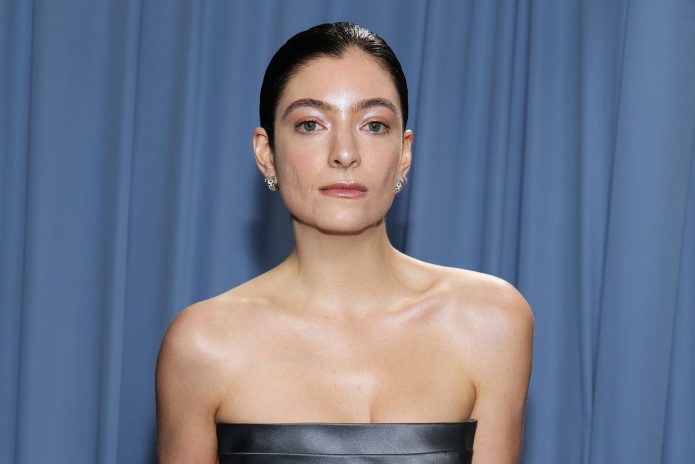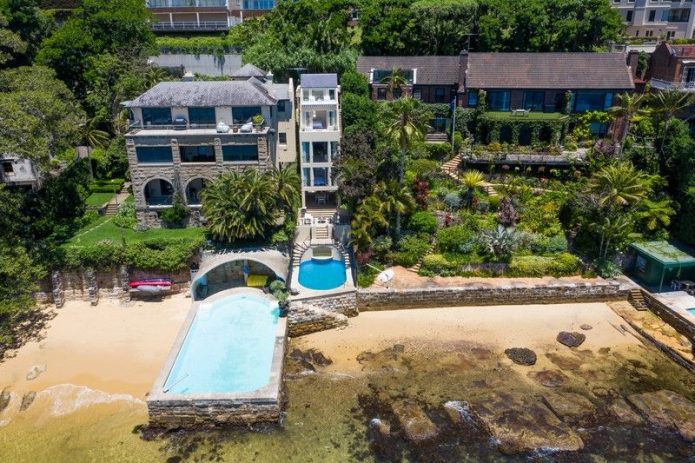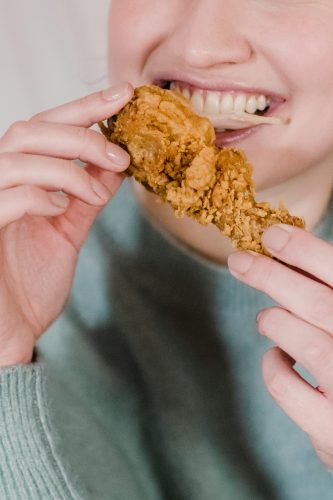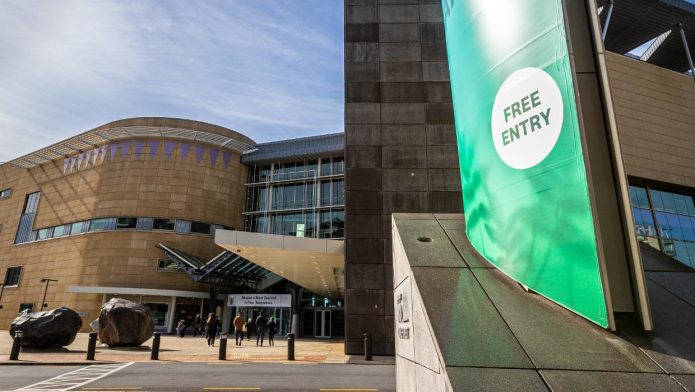PHOTO: FILE
REPUBLISHED WITH PERMISSION – API MAG
Tik tok – is the clock ticking on traditional real estate advertising?
It costs more to advertise a home for sale in Australia than almost anywhere else in the world, which is driving real estate agencies towards more innovative ways of selling property.
It costs more to advertise a home for sale in Australia than almost anywhere else in the world, with the market dominated by two players who each charge thousands of dollars to list a single property.
Now some agents are getting creative — and it’s delivering spectacular results.
Real estate agent reveals how he is using wild TikTok tactics to sell more property | WATCH
Real estate agent Luke Saville, has recently sold — for top dollar — three properties he marketed solely through social media posts to TikTok and Instagram.
In each case, he and the vendor by-passed the two main advertising platforms, realestate.com.au and Domain, and decided to test the market by posting simple walk-through property videos to TikTok and Instagram — for free.
Mr Saville said he would usually advertise through both REA Group’s realestate.com.au, which charges $4,000 to advertise a single property, and Nine’s Domain, which he said charges from $1,500 to $3,000, depending on the property’s price.
Together, that would usually generate around five to six thousand views.
A Hawthorn apartment he recently posted to Instagram and TikTok achieved 325,000 views on Instagram alone — along with 2,600 shares — before selling above the asking price.
“It’s crazy,” Mr Saville said.
“You’re jumping into this massive pool where there’s people looking to buy and your listings are the only ones getting in front of them, because nobody else is doing it.”
The strategy isn’t for everyone, or every type of property, but for those that fit the bill, particularly at the first home buyer level, the payoffs can be huge, Mr Saville said.
An artificial intelligence (AI) bot has been ‘appointed’ as an advisor to the board of the Real Estate Institute of New South Wales (REINSW).
“For the owners that have properties that are highly sought after and they’re not in a great hurry to get it on the market straight away — they’re willing to test the market a little bit — I think it’s a no brainer,” he said.
The AUSTRALIAN real estate agents carving it up on TikTok | WATCH
The Hawthorn apartment drew 12 inspections and sold for $690,000 to a young first home buyer from Queensland who saw the TikTok post, Mr Saville said.
For the off-market sales he uses simple walk-through videos.
“The owners are not investing any money into advertising; it’s as simple as me doing a walk-through video and speeding it up on Instagram and TikTok, so it’s kind of wrapped up in 30 to 45 seconds,” he said.
In another recent case, Mr Saville said the vendors of an apartment in Hawthorn East baulked at the expected advertising costs — around $10,000 all up.
“Just to go on REA and Domain it’s the best part of $6,000 to $7,0000, and then you’ve got your boards, brochures, photos etc, so it’s a good $10,000 dollars all in,” Mr Saville told Australian Property Investor Magazine.
“It was also going to need somewhere between $10,000 and $20,000 of improvements that needed to be done, painting, the floors, and a few other bits and pieces.”
He said the couple were not in a major hurry to sell, “so I suggested to them why not leave it a couple of weeks.”
“I literally just walked through there, drove out there did a walk through and put it up (on TikTok and Instagram).
“And that one in particular wasn’t a very special video, it was extremely raw, he said.
Facebook and Google advertising costs have increased between 40 and 50 percent over the last five years.
– Perry Henderson, Missing Link Social Media
A real estate agent has claimed a viral TikTok beauty massage hack saved her life | WATCH
Regardless, Mr Saville fielded multiple direct messages via TikTok and Instagram and took the prospective buyers through the property.
“There were two that came straight off TikTok, and both ended up bidding against each other, because they both offered the asking price of $500,000,” he said.
The property — despite Melbourne’s lacklustre broader market — sold to one of them for $523,000.
“We didn’t pay anything,” Mr Saville said.
“With advertising and the work they were going to do, it was going to be somewhere from $20,000 to $25,000 — it’s a massive saving.”
Mr Saville said currently “no agents, or very few” are using the strategy.
Marketing via TikTok and Instagram may become less effective as more cotton on — but for Mr Saville it’s showing no signs of slowing yet.
On Sunday he sold a third home, in nearby Kew, with an asking price of $680,000 — again marketed only via free posts to TikTok and Instagram.
“That sold straight off the back of Instagram,” Mr Saville said.
“It was the same thing; it was three buyers who bid back and forth on and two of them ended up taking it all the way to $711,000.
“That’s nearly $30,000 more than the most recent sales in the building with the same floor plan — so not only are they good prices, they’re also saving $10,000 on ads.
“And also, you don’t have to worry about the stress of going through an auction campaign,” Mr Saville said.
Regardless, he said, for most properties and sellers, advertising on REA and Domain remained the main avenue, with TikTok and Instagram an “and” rather than an “or”.
“We’ve got about 15 or 16 properties booked in for campaigns starting between mid-January and mid-February and they’re all booked to go on REA and Domain,” he said.
“So, it’s not like I’m telling people to go down the path of just social media.
“For some owners, such as investors who’ve moved out the tenants, they are keen to get moving on the (sale) quickly.
“But for others who are not in such a hurry, it’s a great strategy.”
Facebook, Google advertising becoming more expensive
Agents and sellers are expected to become increasingly creative, with the cost of online advertising continuing to surge.
Perry Henderson, founder and head of marketing agency Missing Link Social Media, said the cost of social media and Google advertising was tipped to increase significantly in 2025.
“Facebook and Google advertising costs have increased between 40 and 50 percent over the last five years,” he said.
Major brands pushing more heavily into online advertising was helping drive the surge.
“There’ a lot of really, really big brands that are continuing to shift their media spend from traditional marketing like TV, radio and print into digital marketing,” Mr Henderson told API Magazine.
“Wherever the attention is, that’s where the marketers go.”
Mr Henderson said organic social media — free posts on sites such as TikTok, Instagram and LinkedIn — presented great opportunities, but particularly when paired with paid advertising on those platforms.
“Generally speaking, it can be more difficult to get commercial outcomes from organic social media at least reliably and predictably, whereas with paid advertising it’s a lot more measurable,” he said.
“It very much comes back to who your audience is.”
Proptech constantly evolving
Kylie Davis, founder and president of PropTech Association Australia — an industry body that promotes the use of technology inside the property, real estate and construction sectors — said Australia had long been an innovation leader when it came to property marketing.
“The Australian property market is unique in that the vendor typically pays for the marketing campaign,” Ms Davis told API Magazine.
“Our commission levels are lower, around about two per cent, and real estate agents ask vendors to pay for marketing, which has sparked a lot of innovation.”
Decades ago it was the introduction of full colour gloss print advertisements, later the birth of REA and Domain, and most recently experimentation with artificial intelligence.
Initially advertising on REA and Domain had been relatively inexpensive but prices grew as print media declined and eyeballs moved online.
Australia’s innovation in property technology was certain to continue.
“Real estate agents are always looking for more effective and affordable ways to market properties,” Ms Davis said.












